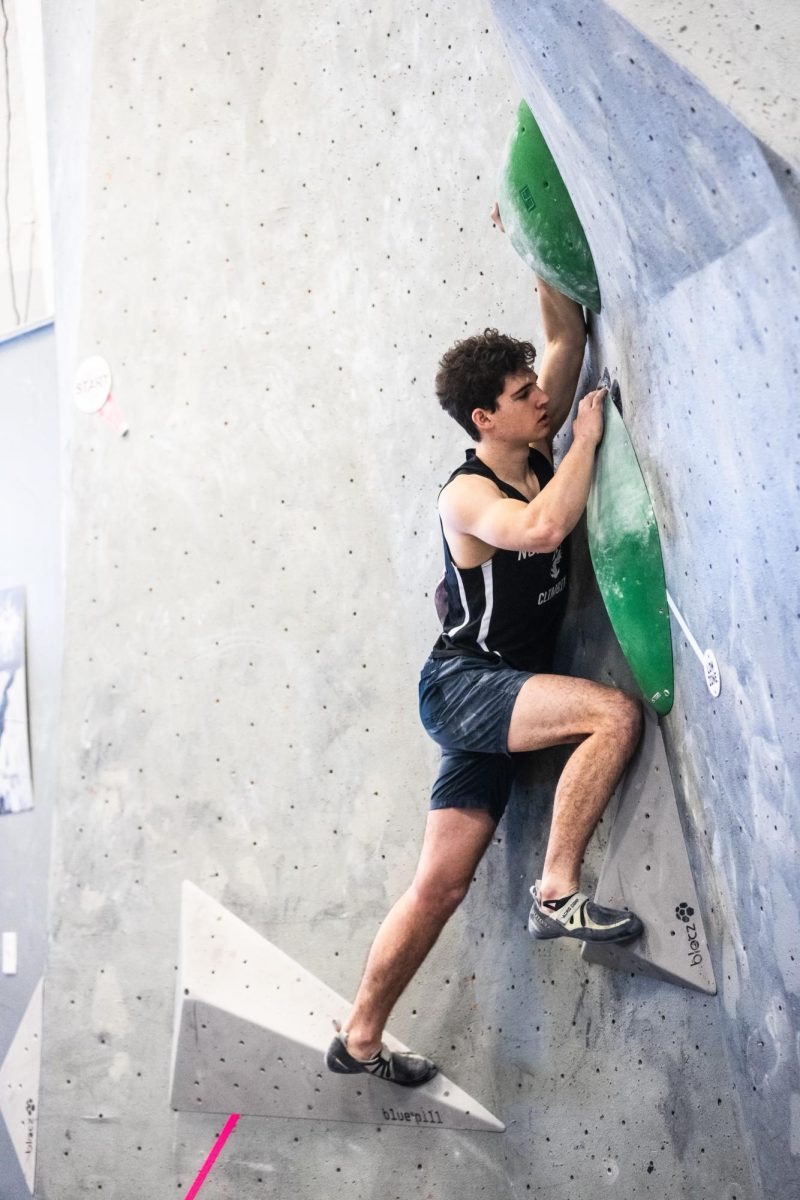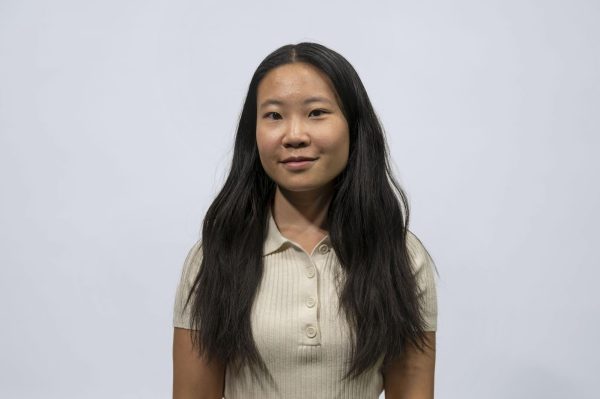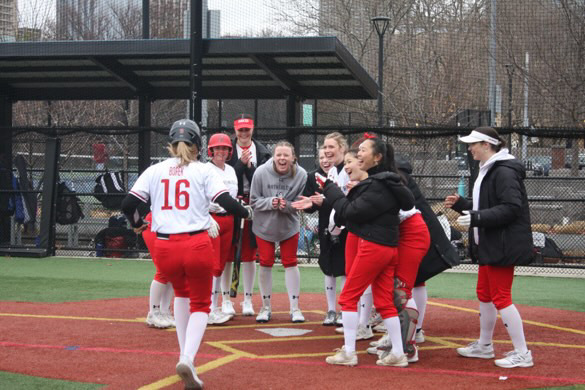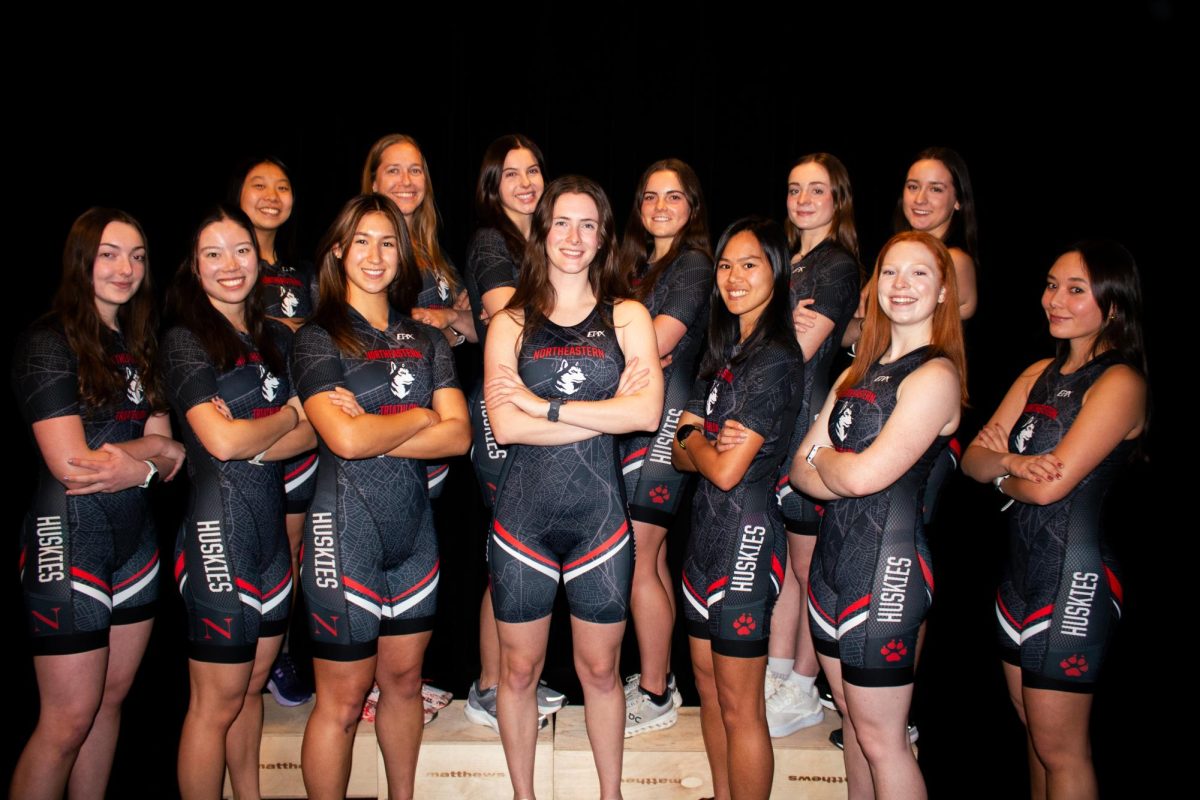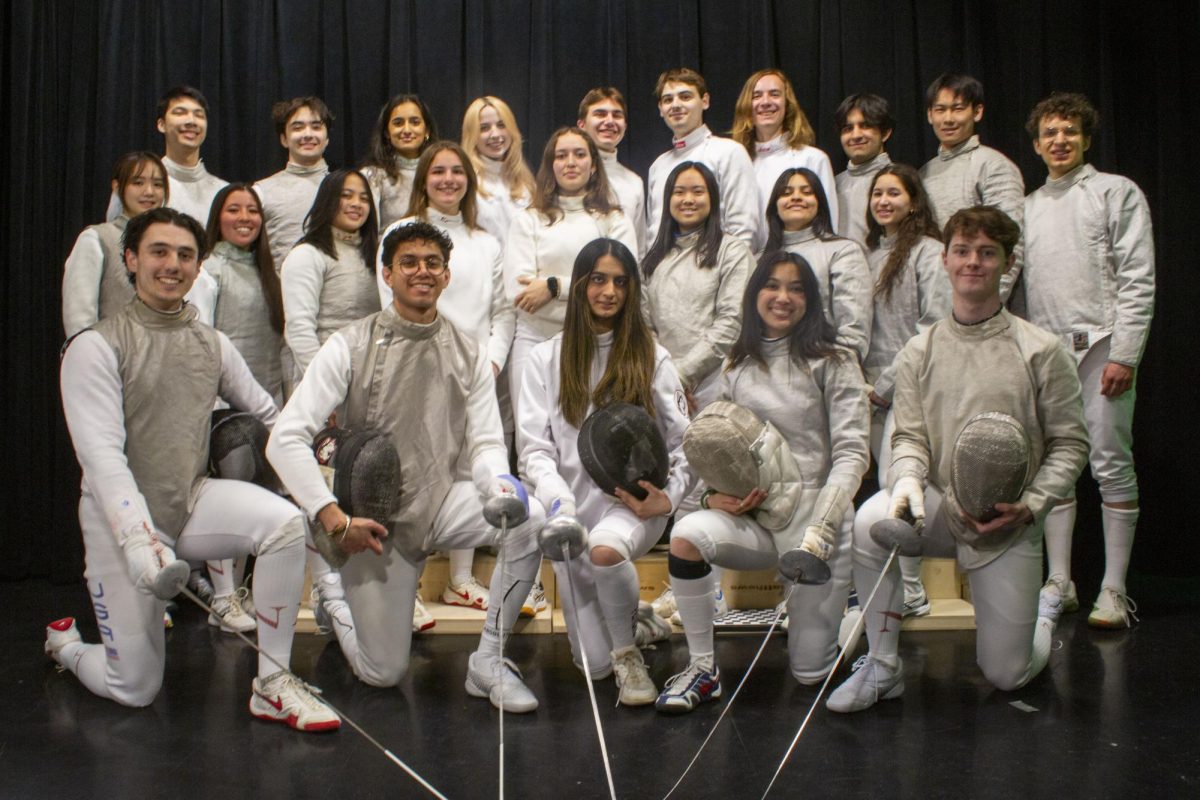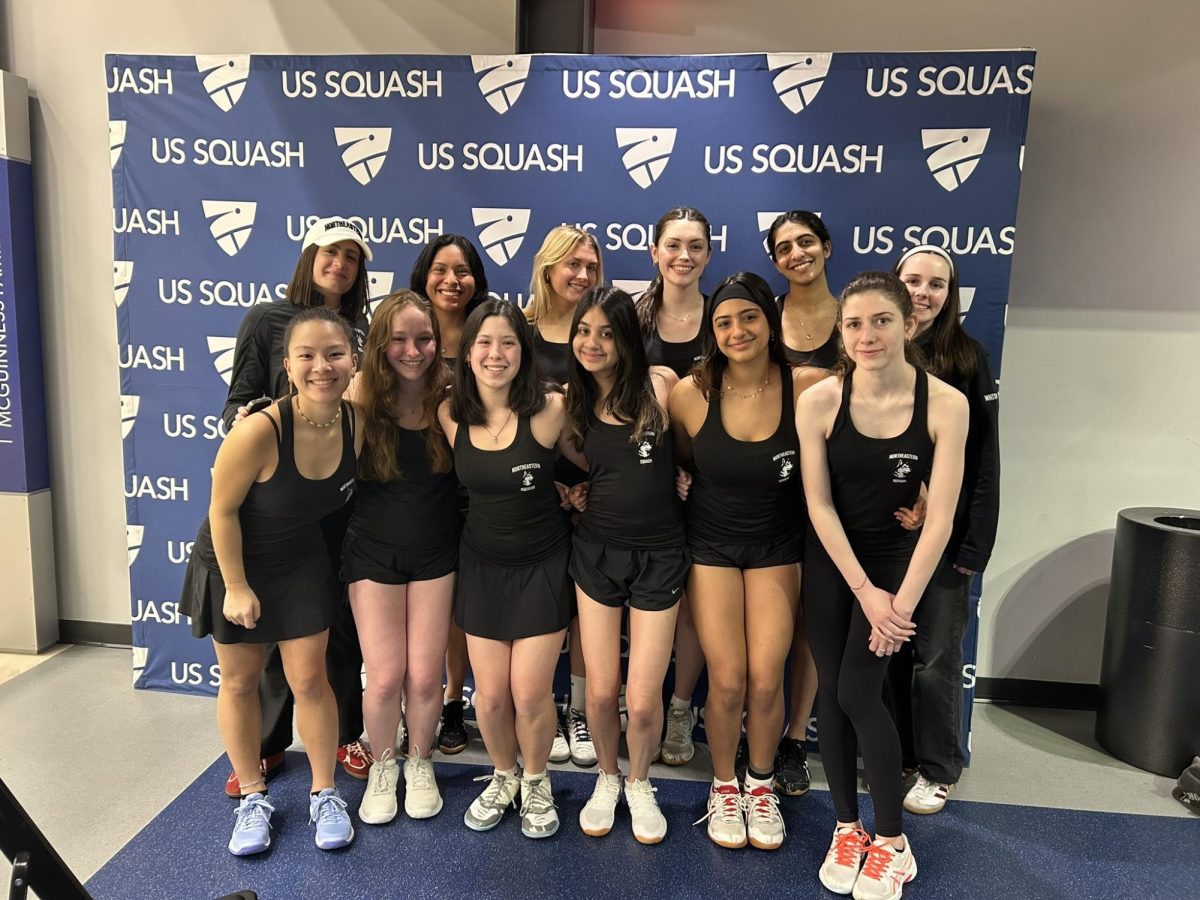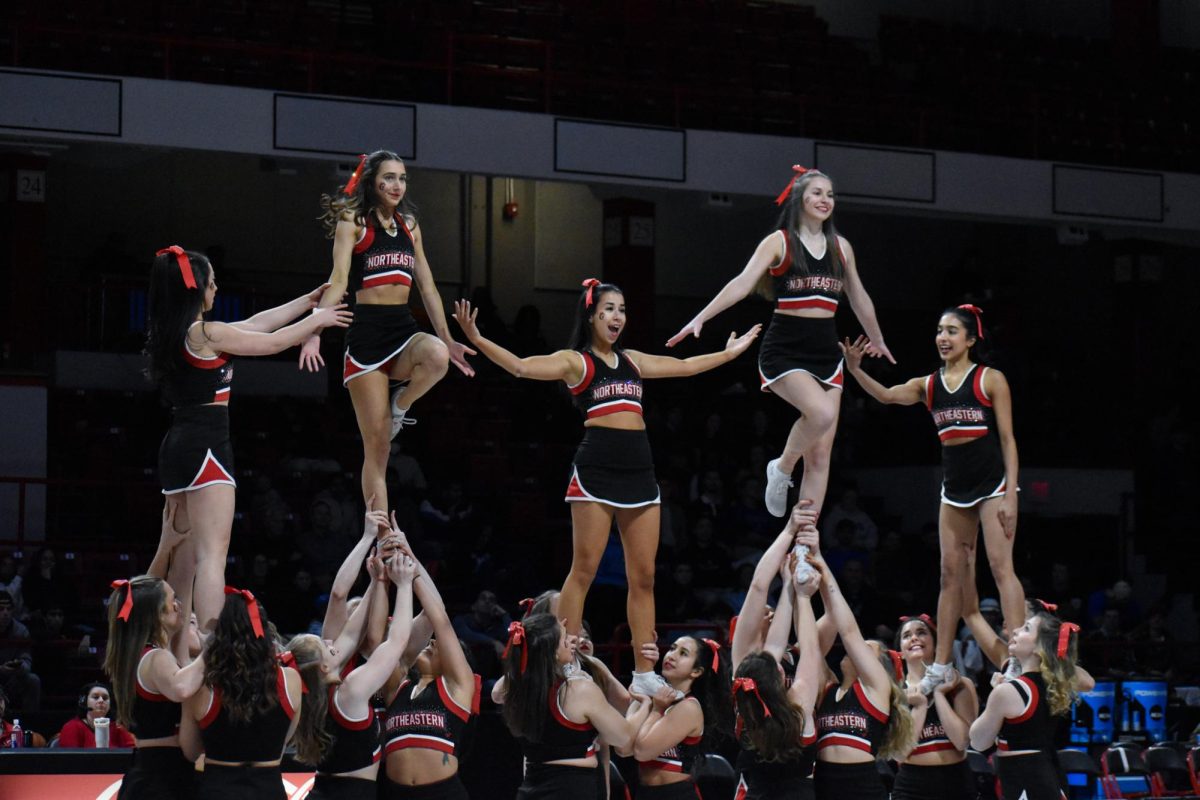Combining strength, technique and problem solving, the Northeastern Climbing Team has consistently proven its skill while giving competitive climbers a supportive campus community.
Founded in 2014, the team has since grown to a roster of 24 students — 12 male and 12 female — all of whom practice and compete in both bouldering and lead climbing.
For many team members, the world of competitive climbing is nothing new. Elana von der Heyden, a fourth-year behavioral neuroscience major and co-captain of the team, has been climbing for 13 years and has competed in youth competitions both in the United States and Germany. Similarly, TJ Marks, a second-year mechanical engineering major and vice president of the club, has been climbing since he was 4 years old and has also competed in the USA Climbing Youth Series.
Every year, the team competes in a Northeast Division qualifying event sometime between October and March in order to attend divisionals, which take place in March at a predetermined location. At divisionals, climbers are split up by gender and discipline (bouldering or lead climbing), with the top 13 competitors from each discipline being invited to compete at nationals.
Competing in the USA Climbing Collegiate competition, the team has consistently ranked highly in nationals the past few years.
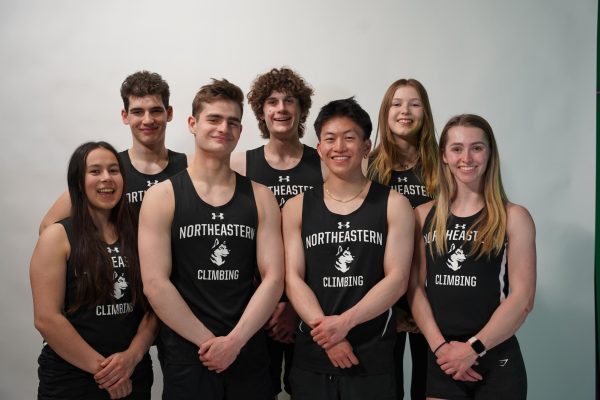
The Northeastern Climbing Team sent seven members to nationals this past year and eight members the previous year, ranking ninth overall at the most recent competition.
“In past years, we’ve proven definitely to be one of the strongest teams in the Northeast Division,” von der Heyden said.
With practices three times a week, the team splits its time between the Central Rock Gym locations in Cambridge, Stoneham and Watertown. However, many members decide to practice on their own on off-days.
On Sundays and Mondays, von der Heyden and Chris Kuang, a fourth-year architectural studies and design combined major and the other co-captain of the team, lead the practices. Each practice includes a 30-minute warm-up, a 30-minute hangboarding session to strengthen members’ fingers, a one-hour projecting session in which members focus on climbing and improving technique and a 30-minute weightlifting session to strengthen major muscle groups.
“We focus a little bit more on strength and technique and really trying to climb at our maximum ability on Sunday,” von der Heyden said. “Monday is more geared toward endurance work, which is a little bit more volume but less intensity just so that we can prevent injury.”
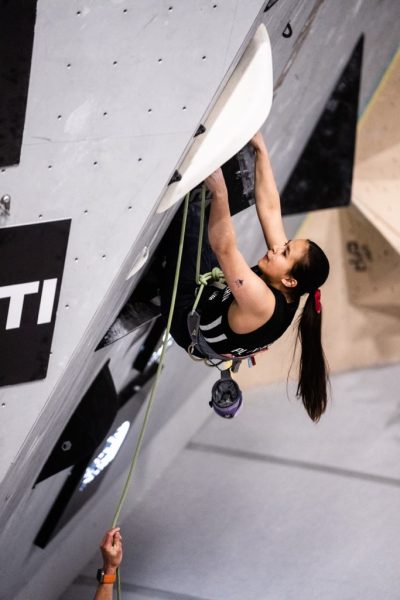
Team members are then split up evenly between Wednesday, bouldering day, or Thursday, lead-climbing day, where members get some preference in which to focus on. During these days, the team’s coach, Lawrence Osefoh, oversees drills and exercises during the climbing portion of practice.
For many members, one of the biggest appeals about the team is the community that it provides. Finding this community helped Marks transition from high school to college.
“It was really cool to have a group of people right from the get-go and have a bonding experience and shared goal of climbing,” Marks said.
In addition to shared interests, school spirit also brings team members closer together.
“I think a lot of climbers just practice by themselves, but it’s kind of a unique opportunity to have a bunch of people all who are interested in competing for climbing and also having the school be supportive of that,” Kuang said. “It’s just a really nice opportunity to be around a lot of people who are super into climbing and also be associated with your school, your university.”
The team recently brought on nine new members, with around 50 students showing up for try-outs. In contrast to years prior to COVID-19, when the team sometimes had trouble filling the roster, there has been a noticeable increasing interest in collegiate competitive climbing.
“Competing on the collegiate series hasn’t always been a priority for high-level climbers coming out of the youth circuit, but recently I think there’s been a shift,” Kuang said. “Not only for our team, but country-wide, more kids are interested in joining the competitive circuit.”
This shift is in part due to the expansion of the USA Climbing Youth series over the past decade; students who have been able to climb in the youth series most of their lives are finally entering college and bringing their enthusiasm for competitive climbing

with them.
“Every year, there’s always people who graduate as well — strong climbers,” von der Heyden said. “So you always have turnover. But the really strong climbers are getting younger and younger, so [the upcoming competition season] definitely be a challenge.”
Outside of the gym, the Northeastern Climbing Team participates in various forms of volunteer work. While Northeastern stopped requiring club sports to participate in volunteering efforts in the fall of 2022, the team still plans on seeking out these opportunities. Last April, the team worked with the Boston Urban Wilds program to clean up the area around Nira Rock, then enjoyed some climbs afterwards. In the past, it’s also helped belay for youth classes and competitions at gyms around the area.
“Even though it’s no longer required, we’re definitely interested in giving back to the outdoor community and climbing community,” von der Heyden said.
In the future, the team looks forward to seeing new generations of climbers carry on its traditions and values while also advancing the team’s performance and sense of community.
“There’s a lot of young climbers who are really psyched on our team,” Kuang said. “I’m excited to see them develop and continue building the team. I think we have a good framework, but I think there is a lot of room for improvement.”
With the season just starting, the Northeastern Climbing Team will no doubt be putting its all into preparing for divisionals and nationals.
“Get stronger and have more fun: that’s really what climbing’s all about,” Marks said.



